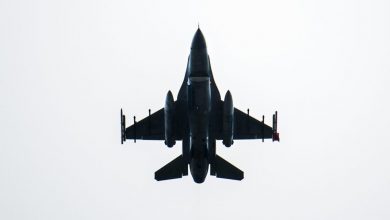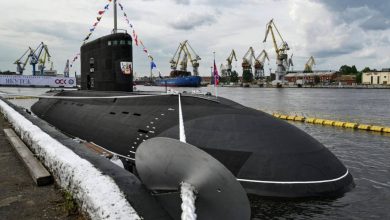Report: US raises alarm over Iran’s chemical weapons with synthetic opioids

A U.S. expert has warned that Iran is developing chemical weapons using synthetic opioids like fentanyl, creating agents that could incapacitate both soldiers and civilians.
The warning comes amid rising regional tensions in the Middle East, with concerns that Iran may supply these powerful chemical agents to its proxies, including Hezbollah, for potential use in conflicts.
Matthew Levitt, a senior fellow at the Washington Institute, highlighted these developments in an article for the Combating Terrorism Center at West Point, saying that Iran’s weaponized pharmaceutical-based agents (PBAs) represent a growing threat. “At a time of growing regional instability in the Middle East, largely the result of the militancy of Iranian proxies, the threats posed by Iran’s weaponized PBA program can no longer be overlooked,” Levitt wrote.
Pharmaceutical-based agents, or PBAs, are substances derived from pharmaceutical compounds that, when weaponized, can incapacitate or even kill, depending on the level of exposure. These agents work by targeting the central nervous system, making them capable of causing rapid and severe effects. Levitt’s warning follows reports from the U.S. and allied nations indicating that Iran has breached the Chemical Weapons Convention—a treaty it signed in 1997 that bans the production and use of toxic chemicals.
According to Levitt, Iran has been pursuing research into narcotics that could be used as chemical agents for incapacitating purposes since at least 2005, in direct violation of international norms. This research, he stated, may not be restricted solely to military applications; it has also been linked to recent school poisoning incidents within Iran, raising questions about the domestic use of such capabilities. The Combating Terrorism Center cited Iranian journalists who have alleged that PBAs could be connected to these poisonings, hinting at broader government misuse.
“The problem is that Iran is right when they said they’ve been victims of chemical weapons in terrible ways during the Iran-Iraq war,” Levitt told Business Insider. “But the reality is they themselves have been using these as well.” Iran has previously claimed that its development of PBAs is focused on lawful crowd control, but international organizations like the Organisation for the Prohibition of Chemical Weapons (OPCW) have expressed concerns about the dual-use potential of such technologies.
Experts fear that Iran may have already provided PBAs to its proxy forces, including Hezbollah, which could use these agents as tools for kidnapping Israeli soldiers or civilians. The potential to use PBAs in grenades or artillery raises the stakes significantly, as these weapons would enable Hezbollah and other groups to incapacitate large numbers of people with limited physical harm—a tactic that could serve strategic objectives while reducing collateral damage.
The U.S. and its allies have consistently raised alarms over Iran’s chemical weapons program. The 1997 Chemical Weapons Convention obliges signatories, including Iran, to destroy existing stockpiles of toxic chemicals, particularly those capable of causing death or serious harm to humans and animals through their chemical action on life processes. Despite these commitments, Iran appears to be advancing its pharmaceutical-based chemical weapon capabilities, raising concerns about the broader implications for regional and international security.
The development of synthetic opioid-based chemical agents presents a distinct challenge for international regulators, given the dual-use nature of many compounds involved in the pharmaceutical industry.





